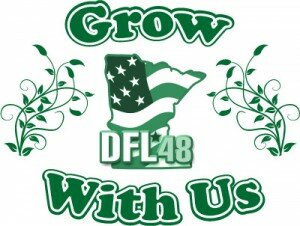CONTRIBUTE! VOLUNTEER! CONTACT US!
Grow with Us Plant Sale!
Get all of your garden needs and help support DFL48! This year, we’re offering you plant cards at both Gerten’s Greenhouses and Garden Center in Inver Grove Heights and Wagner’s Greenhouse in Minneapolis and Bloomington.
Tweets by @DFL48
TAG | income inequality
 John Komlos, an economist, writing for PBS.org posted an article on May 4, 2015, titled “Income inequality begins at birth and these are the stats that prove it.”
John Komlos, an economist, writing for PBS.org posted an article on May 4, 2015, titled “Income inequality begins at birth and these are the stats that prove it.”
In the essay, he states that “even conservative Republican Alan Greenspan, an ardent advocate of free markets, is beginning to see inequality as a fundamental threat to the system and admits that,’You cannot have the benefits of capitalist market growth without the support of a significant proportion, and indeed, virtually all of the people; and if you have an increasing sense that the rewards of capitalism are being distributed unjustly, the system will not stand.'”
Mr. Komlos goes on to detail breakdowns in our current system that are causing people to be stuck in poverty from birth to death.
Here’s a link to the complete article.
Income inequality is increasing, with the Middle Class shrinking fast. And, the Middle Class made up of regular people like you and me, are the hardest hit. Here’s a new video from Think Progress on what regular people know about the income gap between rich and poor:
Growth and Justice has released a report on how the widening economic inequality here in our own state is impacting us. Here’s a quote from their post that includes a link to the full report:
“The latest report from Growth & Justice adds important details and an intriguing new “ask” to the critical public policy challenge of our time—escalating economic inequality in our nation and in Minnesota. The attached report, “Widening Economic Inequality in Minnesota: Causes, Effects, and a Proposal for Estimating Its Impact in Policymaking,” makes these key points:
- Minnesota ranks among the less unequal states but our position relative to others on inequality may be slipping. Median income in Minnesota has declined to near the national level while poverty rates and the Gini coefficient (a measure of overall inequality) are rising in Minnesota, reflecting national trends.
- States with less inequality tend to be more prosperous overall and many economists say growing inequality presents a serious threat to aggregate consumer demand and will put a brake on future growth.
- Minnesota policymakers ought to consider new tools for weighing the impact on economic inequality of pending legislation and other policy proposals. We are proposing an Economic Inequality Impact Assessment for proposed laws and regulations that have a significant effect on taxes, state and local budgets, or the economy.
Much attention this week is being drawn to the very important racial dimension of our nation’s inequality problem and Growth & Justice will continue analyzing and prescribing policies that reduce racial disparities in education, employment and income. But this report provides important context for the broader problem of inequality in the United States and Minnesota, namely the continuing shift of income and wealth to households at the top of the scale and declining income and wealth for those in the middle and lower ranges.
The report has been making headlines across the state and has also been picked up by media outlets in North and South Dakota.
GOP war on the Middle Class · Growth and Justice · income inequality
27
Income Inequality Has Cost Social Security Trust Funds More Than $1 Trillion Over Past Three Decades
 Here’s a recent statement from the Center for American Progress on income inequality and the GOP’s war on the middle class is affecting Social Security:
Here’s a recent statement from the Center for American Progress on income inequality and the GOP’s war on the middle class is affecting Social Security:
A new analysis from the Center for American Progress demonstrates the extent to which rising income inequality has impacted the solvency of the Social Security trust funds and poses a threat to their long-term financial health. The analysis reveals that stagnant and declining wages for working families and the upward redistribution of income have taken a substantial toll on the Social Security trust funds. CAP Executive Vice President for Policy Carmel Martinand Sen. Bob Casey (D-PA), a member of the Senate Finance Committee, discussed the findings on a news conference call today.
Specifically, CAP’s issue brief finds that the trust funds would be $753.8 billion larger had the average worker’s wages kept pace with productivity growth between 1983 and 2013, thereby reducing the expected 75-year shortfall of the trust
GOP war on middle class · income inequality · social security
19
Tax the Rich: An animated fairy tale
Tax the rich: An animated fairy tale, is narrated by Ed Asner, with animation by Mike Konopacki. Written and directed by Fred Glass for the California Federation of Teachers. An 8 minute video about how we arrived at this moment of poorly funded public services and widening economic inequality. Things go downhill in a happy and prosperous land after the rich decide they don’t want to pay taxes anymore. They tell the people that there is no alternative, but the people aren’t so sure. This land bears a startling resemblance to our land. For more info, www.cft.org. © 2012 California Federation of Teachers
1% · 99% · income inequality · tax the rich
 DFL48
DFL48